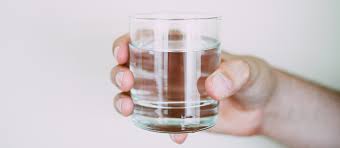Indeed, water holds a pivotal role in our everyday existence, being an essential resource. Its quality wields a profound impact on our health and overall well-being, making it of utmost significance to pay attention to its purity and condition.
Hard water, which contains high mineral content, is a common concern in many areas. When hard water evaporates or is heated, it can leave behind mineral deposits, commonly known as limescale or hard water deposits.
Hard water filters offer a fantastic solution to combat the problems caused by mineral deposits in hard water. These filters efficiently reduce the mineral content, averting the formation of limescale and its detrimental effects on household appliances, plumbing, skin, and hair.
For individuals seeking to acquire hard water filters, a trustworthy choice is hardwaterfilters.com.au. This website provides a diverse range of top-notch filters crafted to tackle hard water issues, ensuring a cleaner and healthier water supply for your household.
Understanding Hard Water Deposits
Hard water deposits are primarily composed of calcium and magnesium ions, which are naturally present in the water. When the water is exposed to heat or allowed to evaporate, these minerals form solid, whitish-colored deposits. These deposits can accumulate on various surfaces, including faucets, showerheads, sinks, and even inside appliances like kettles and washing machines.
Effects on Household Appliances
One of the primary concerns with hard water deposits is their impact on household appliances. Over time, the build-up of limescale can affect the efficiency and performance of appliances. For instance, limescale in kettles and coffee makers can reduce heating efficiency, leading to increased energy consumption. In washing machines and dishwashers, limescale can hinder the proper functioning of heating elements, pumps, and spray arms.
Effect on Plumbing
Hard water deposits can also take a toll on plumbing systems. The build-up of limescale inside pipes can restrict water flow, leading to reduced water pressure. In severe cases, clogs caused by mineral deposits may require professional cleaning or even replacement of the affected pipes, leading to additional costs for homeowners.
Impact on Skin and Hair
When hard water is used for bathing, the mineral deposits can interact with soap and shampoo, forming soap scum. This residue may not only leave a film on the skin but can also make hair feel dull, dry, and difficult to manage. Additionally, soap scum can clog pores and cause irritation for individuals with sensitive skin.
Effect on Cleaning
Cleaning with hard water can be less effective due to the reduced lathering of soaps and detergents. The presence of mineral ions in the water can interfere with the cleaning process, making it challenging to remove dirt and grime from surfaces.
Managing Hard Water Deposits
While hard water deposits can pose challenges, several methods can help manage and reduce their impact:
Water Softening: Installing a water softener can effectively reduce the mineral content in hard water. Water softeners use ion exchange technology to replace calcium and magnesium ions with sodium ions, resulting in softened water.
Descaling Agents: Regularly using descaling agents can help dissolve and remove existing limescale deposits from appliances and surfaces. These agents are available in commercial formulations and can be applied following the manufacturer’s instructions.
Vinegar Solution: A natural and cost-effective method to remove limescale is by using a vinegar solution. The mild acidity of vinegar helps dissolve the mineral deposits, making it easier to clean affected surfaces.
Water Filters: Installing water filters with activated carbon or ion-exchange resin can help reduce mineral content in drinking water and improve its taste and quality.
Conclusion
Hard water deposits can indeed have negative effects on household appliances, plumbing systems, skin, hair, and the effectiveness of cleaning agents. However, with the right approach and appropriate measures, the impact of hard water deposits can be managed effectively. Utilizing water softeners, descaling agents, and natural solutions like vinegar can help ensure a more efficient and comfortable living environment, while also preserving the longevity of household appliances. Remember, staying informed and proactive in addressing hard water concerns is essential for maintaining the overall well-being of your home and family.
 Lifeyet News Lifeyet News
Lifeyet News Lifeyet News





